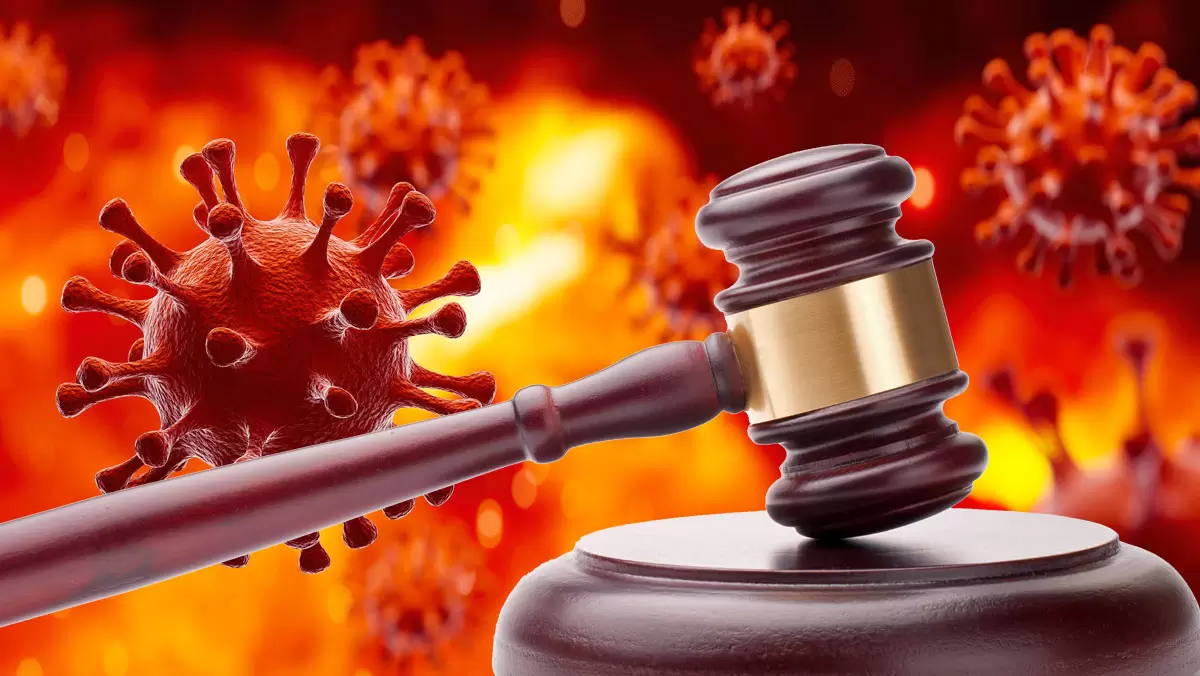
Simply put, the most likely effect of COVID-19 on your criminal case will be delay. Whether your case began before or during the pandemic, this blog entry applies to you. If your case was pending, it probably was already delayed.
Generally, the pandemic has slowed the pace of arrests and the issuance of tickets, though neither has stopped.
Law enforcement officers continue to report for duty, but they are no more immune than anyone else. Officers routinely come into close contact with a wide variety of people; an arrest requires physical contact that extends into closed environments like the squad car and booking areas at jails. Cops then return to duty to make more close contacts. Corpus Christi has one of the most prolific outbreaks in the nation, including some elected officials. It’s so bad here, it made national news. At least two local police officers and a victim’s advocate have died of COVID-19.
Many factors disrupt the normal functioning of the so-called “criminal justice system”.
Beyond the massive problems with COVID-19 at the jails, criminal cases confront logistical challenges that can stall progress rapidly with no warning and possibly no end in sight.
A typical criminal non-trial court day involves many people. This includes the judge, prosecutors, defense attorneys, defendants who were released on bond, jail inmates accompanied by jailers, court security in the form of bailiffs, clerks of the court for the official records, court reporters who record everything said, probation officers, and other various court personnel. There may be 10 people or 100+, depending upon the court’s scheduled business for the day.
If any group fails to appear, court business sputters and becomes completely unproductive. All the efforts by every other participant could be wasted.
Even when no family members, reporters, witnesses, or juries are involved, the number of necessary participants make for a potent opportunity to spread a particularly contagious virus.
Each and every one of the people mentioned could unknowingly be infected and infectious before entering the courtroom. Any interaction can spread the virus, which can then be spread to anyone else the carrier encounters.
Tentative plans and express, written protocols to minimize the possibility of the spread of the virus are in place. You may find them here. They vary from court to court, rather than a uniform procedure being instituted, so you may need to become familiar with the entire list of protocols for your court. Your lawyer certainly must do so.
Even with every precaution taken, a court appearance can put you at risk of contracting the disease. You can do everything right, and still find yourself waiting for your day in court.
If an outbreak originates from the clerk’s office, for example, everyone in that department may get sent home. When the clerk’s office becomes safe again, another department could get hit. This, along with the other departments participating, may mean all the best laid plans could be frustrated. We can’t know for certain where it will strike or how long it will set back court.
Jury trials present even more complex health challenges. In my opinion, bringing in dozens or hundreds of people to the courthouse poses a huge risk. Until significant inroads have been made against the spread of COVID-19, such as the development of an effective vaccine with ample distribution, I believe it would be thoroughly irresponsible to proceed with jury trials.